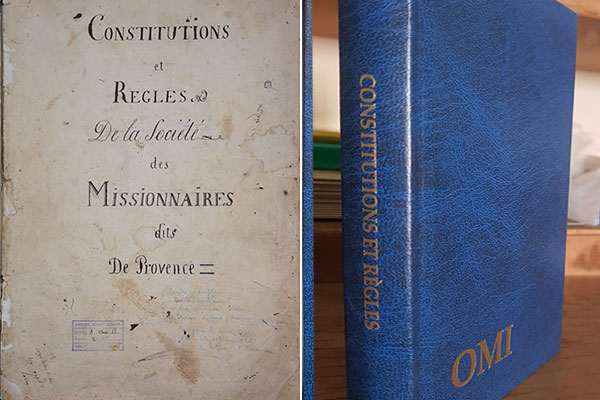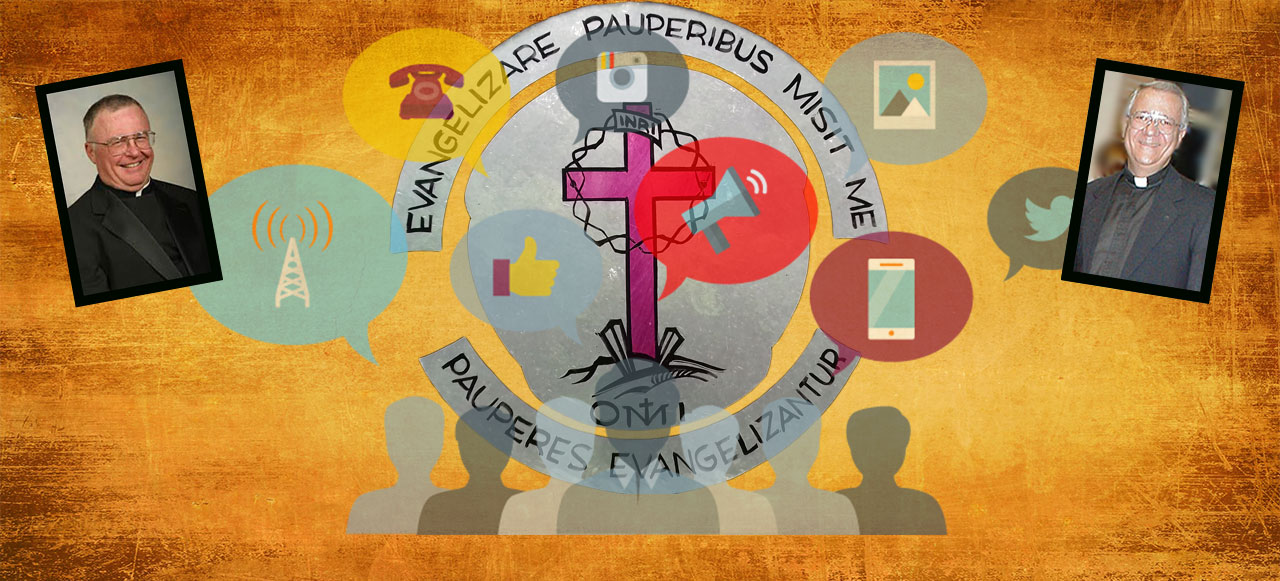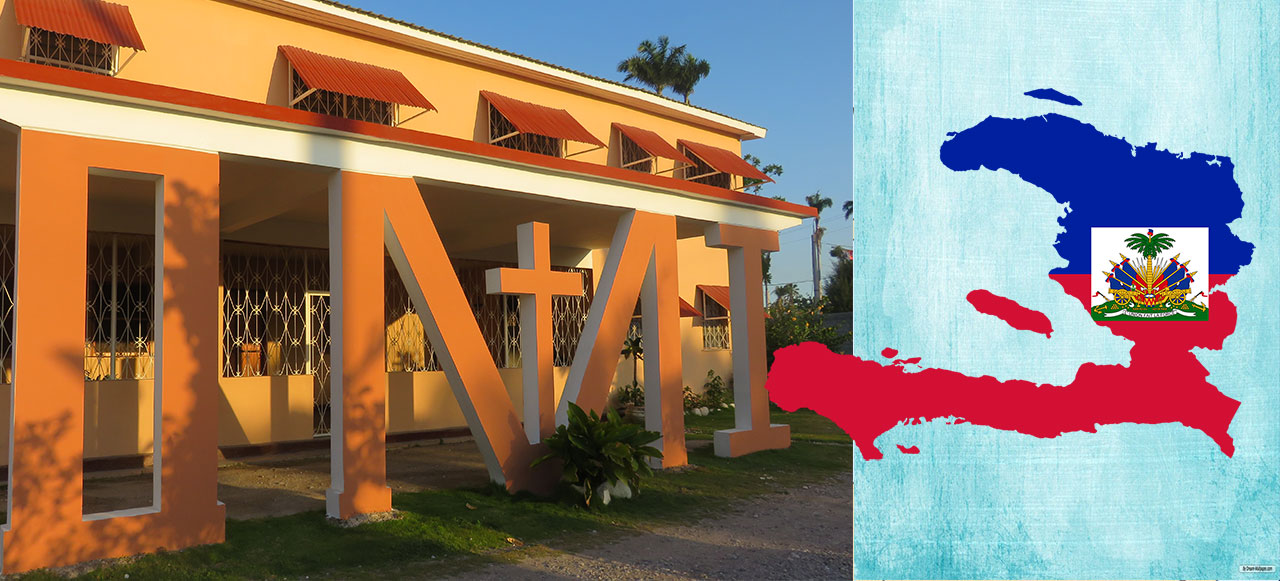General Administration
12/10/2018
 Fr. Paolo Archiati OMI
Fr. Paolo Archiati OMI
Vicar General
These years, our religious missionary family is celebrating important anniversaries. On January 25, 2016, it celebrated 200 years of life, recalling the day when its Founder, Saint Eugene de Mazenod, began to live together with four of his companions and friends with the purpose of responding to the Church’s cry for help as she saw the faith of her members fading and being extinguished, following the devastation of the French Revolution, not to mention the defection of so many of her ministers.
For this small community, to which other young men would soon be added, Eugene soon thought of writing a rule of life, a code that would help them reach the ideal they had set for themselves the day they were gathered together in an old Carmelite convent, in Aix-en-Provence, in Southern France.
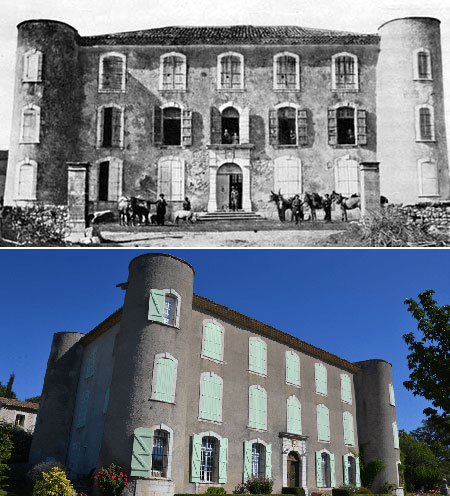
The old castle owned by Eugene’s family in Saint Laurent du Verdon, where he wrote the first Constitutions and Rules.
In order to develop this rule, therefore, in September 1818, Eugene, together with two of his companions, went to an old castle owned by his family, about sixty kilometres from Aix, his hometown. That is why, in September 2018, we are celebrating the 200 years since that far-off September, in memory of his desire to give his Missionaries of Provence a text that would help them become saints and show them the way to proclaim the Gospel to the abandoned populations of the region, especially the poorest.
This Rule has been retouched many times over the past 200 years, adapted to the situations of the religious family for which it was written, as well as of the Church and the world in which the missionaries have continued to carry out the mission of “evangelizing the poor”, in fidelity to the original inspiration of their Founding Father.
Presenting Father Jetté’s commentary on the Rule, Father Marcello Zago, then our Superior General, said that the Constitutions and Rules are essential for every religious family. He called them “the point of reference on which the identity of their members depends… a mine to deepen the charism, a concrete way to discern the will of God, a reflection of the Gospel, of which they help us to understand the needs, a means of renewal for people and communities”.
The Rule written by Saint Eugene would be approved by the Pope only eight years later, in February 1826, but in the meantime, it was the lamp to guide their first steps in religious and missionary life. After the Pontifical approval, Eugene would invite his Oblates to embrace the Rule with heart and soul and to practice with ever greater fidelity what it prescribed.
A few years later, in the retreat notes of 1831, he wrote: “Let us esteem this precious Rule, let us have it unceasingly in front of our eyes and, even more, in the heart… We must let ourselves be penetrated by the spirit of our Rules and, to get there, we must make it the object of our continuous meditations”. The Rule must therefore be studied, continues Father Zago in his presentation, constantly meditated, and must become the object of our prayer.
“… We want to choose men who have the will and the courage to walk in the footsteps of the apostles,” wrote Eugene de Mazenod in his first letter to Father Tempier, October 9, 1815. The Rules tell us what these men are, what love of Jesus lives in them, what missionary zeal burns in them, what religious life animates them, how they have been formed and how they want to live their community life!
In order for the Constitutions to become a book of life, it is necessary to know them, it is necessary to live them. The intelligence can accept them, the will can accept them, but they must also be accepted by the heart, as they need to penetrate our senses. Only then can we say with all honesty that we have “internalized” the Constitutions.
Internalize, a strong word. It takes our whole life to internalize the Rule, and it is still not enough. For this reason, and rightly so, Father Jetté concluded: “Until the most intimate part of our being has been touched, transformed by the love of Jesus Christ… we may not have reached the goal yet, we may still be on the way. What the Constitutions, the book of life, tend towards is to create in us a new life, the life of the apostolic man. It is the wish of our blessed Founder …”
Speaking to the Oblates gathered in the Chapter on October 7, 2016, Pope Francis reminded them that their first rule of life is charity, to which the Founder has invited us with his spiritual testament, a charity from which derives, as a natural consequence, the zeal for the salvation of souls. This exhortation by Pope Francis combines the beginning and the end of Eugene’s life: his Rule and his Testament. These words of Francis help us not to forget that our religious missionary family has two main principles, closely linked and interdependent. From our desire and our tension towards holiness comes the effectiveness of our missionary action; from the challenges of our mission, faced and lived with the missionary zeal that characterizes us, that holiness is born which is a gift of God for our brothers in the community to which we belong and for the poor we serve.
We just have to open this book and immerse ourselves in it. If we read it with new eyes and with a new heart, we will discover it as “new”, even if the material words may seem ancient … To discover it as new, it is enough to read it with the eyes of the Church of today, of the humanity of today, of the Congregation of today…
Enjoy the reading!
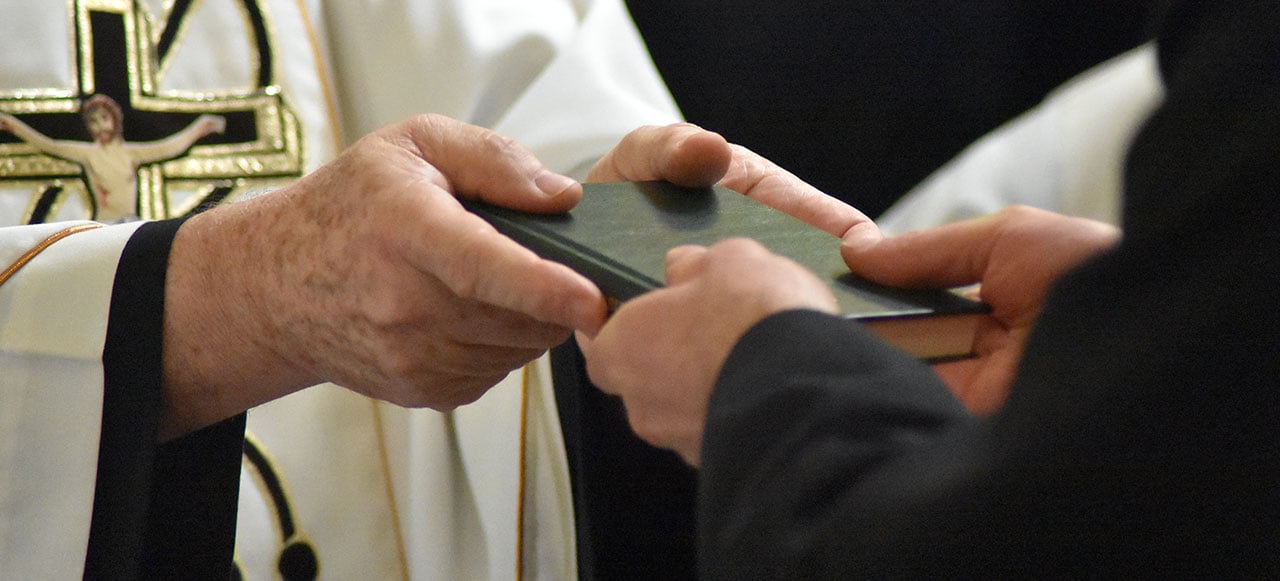
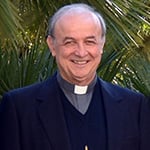 Fr. Paolo Archiati OMI
Fr. Paolo Archiati OMI